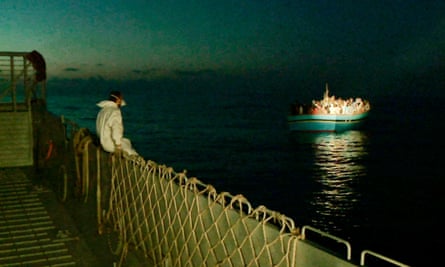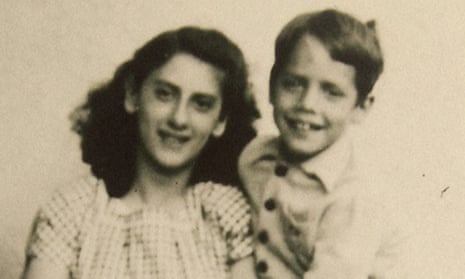Markus Imhoof’s Eldorado is a deeply felt documentary essay on Europe’s refugee question. He has bold footage shot from an Italian warship picking up desperate people from the sea, and films, too, in a train where refugees are attempting to cross borders illegally. There are also segments shot in the camps and fields where refugees are exploited as labourers and sex workers by the ugly forces of organised crime, for whom the influx of desperate souls in southern Italy has been an economic game-changer.
Imhoof interviews a refugee woman who has been temporarily – and legally – employed in Italy as a caregiver in a geriatric unit. He asks what she has endured to get to this stage and she says that she cannot tell him: “I cannot tell my family about the things that I hide even from myself.”
In parallel with all this, Imhoof tells a poignant personal story. When he was a little boy in neutral Switzerland during the second world war, his family took in an Italian refugee girl called Giovanna. She became a big sister to Imhoof: they became penpals when she was forced to return to Italy after the war, but fell ill in her early teens, at least partly, perhaps, because of trauma and malnutruition. It is a heartwrenching moment when Imhoff recounts the fact that Giovanna won a doll from a newspaper competition and was determined to post this to Imhoof’s family – because they had given her so much.

Like Gianfranco Rosi’s Fire at Sea (2016), this film details the strange, alienated choreography of getting refugees out of their collapsing inflatables (which the gangsters and people smugglers knew had no chance surviving the journey), on to ships, there to be examined, recorded, classified and asked to wait patiently until land is reached. There are a lot of angry, traumatised men. Imhoof was not allowed to record the mutiny that occurred on board when bad weather and overcrowding meant many refugees had to stay above decks in the rain. But the Italian military are scrupulous and hardworking: their commanding officer is shown reminding them they will be on duty until three in the morning but expected to shave properly the next morning, nonetheless.
All the officialdom, all the photographing and note-taking, has a soothing effect on the refugees – to some extent. At last, the mix of chaos and inactivity is over and there is a fresh air of purpose to their lives. The “eldorado” of the EU is near. Many, however, do not like giving fingerprints, which will cement their new official existence in Italy, where they are legally bound to claim asylum: they actually plan to make an unofficial further overland journey to a northern European city.
But then the brutal reality of waiting, waiting, waiting in a transit camp reasserts itself, after which they may be refused entry. Well-meant official gestures of guardedly compassionate welcome will then start to seem empty. There is a powerful moment at the customs office of a rail station just over the Swiss border, where some refugees had made a thwarted illegal crossing: a little girl suddenly, angrily throws away the bottle of mineral water and protein bar she had been given by a kindly officer. She senses this is the prelude to frustration: the sugaring of a bitter pill. A sober, sombre movie.
